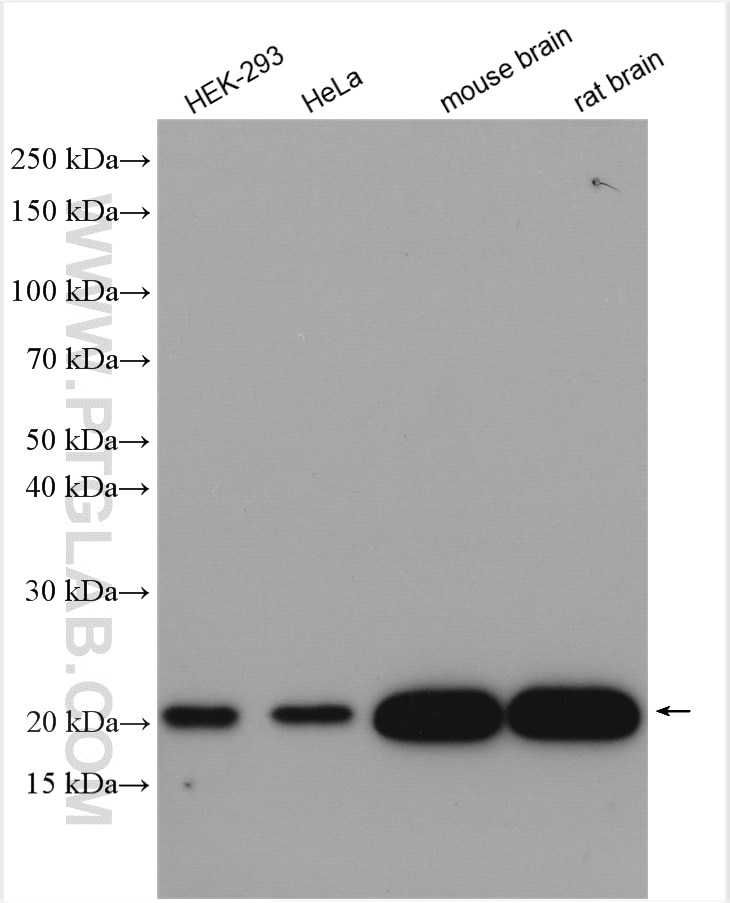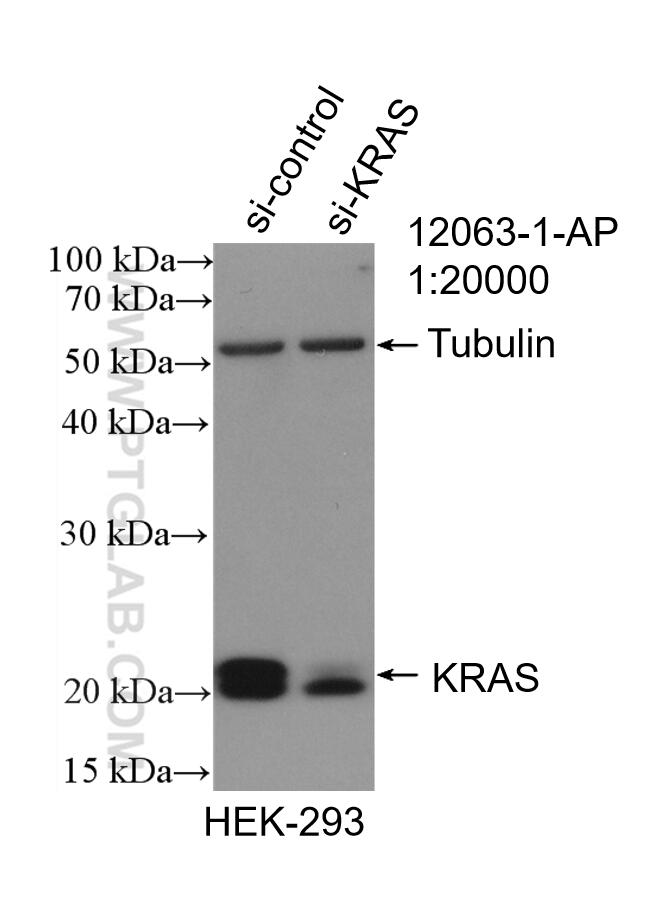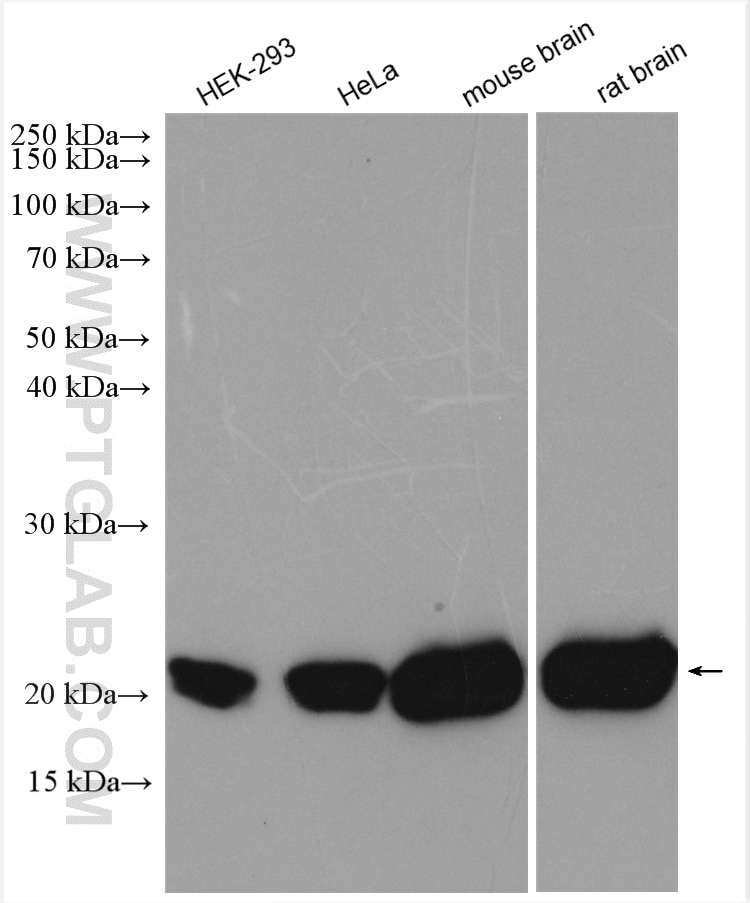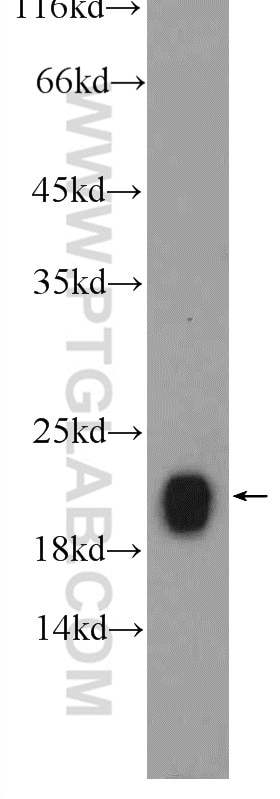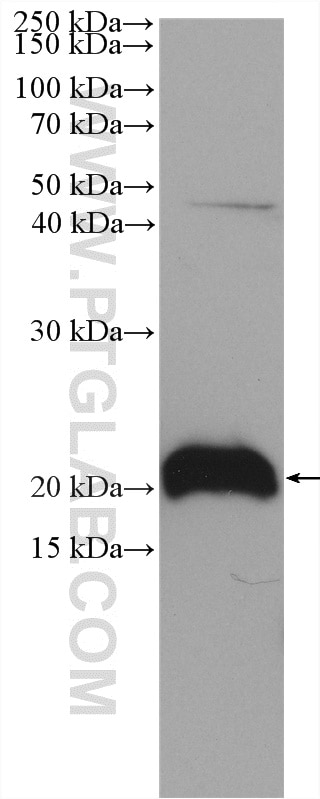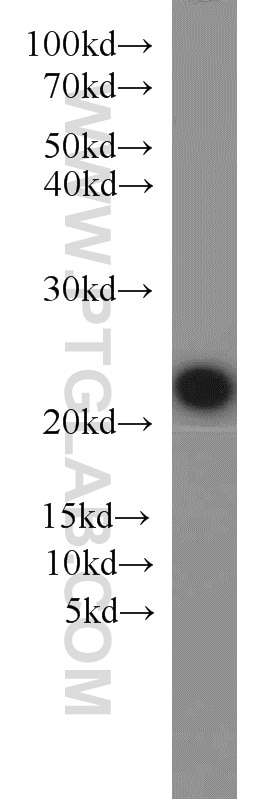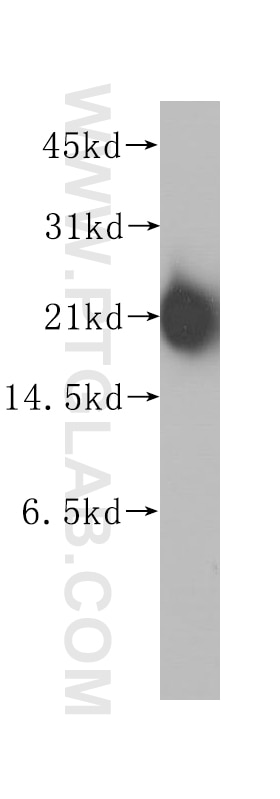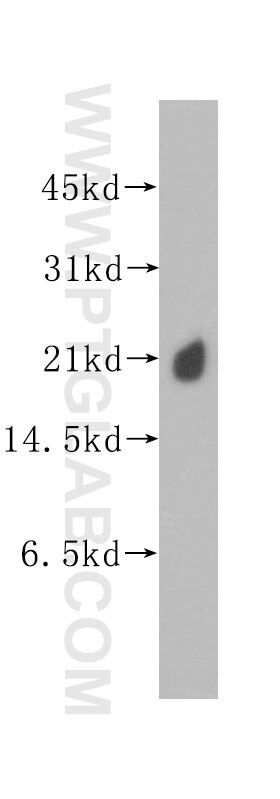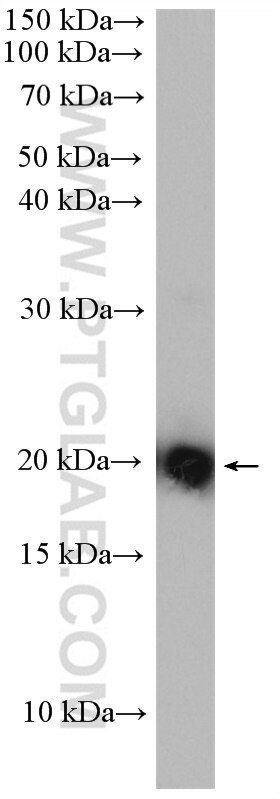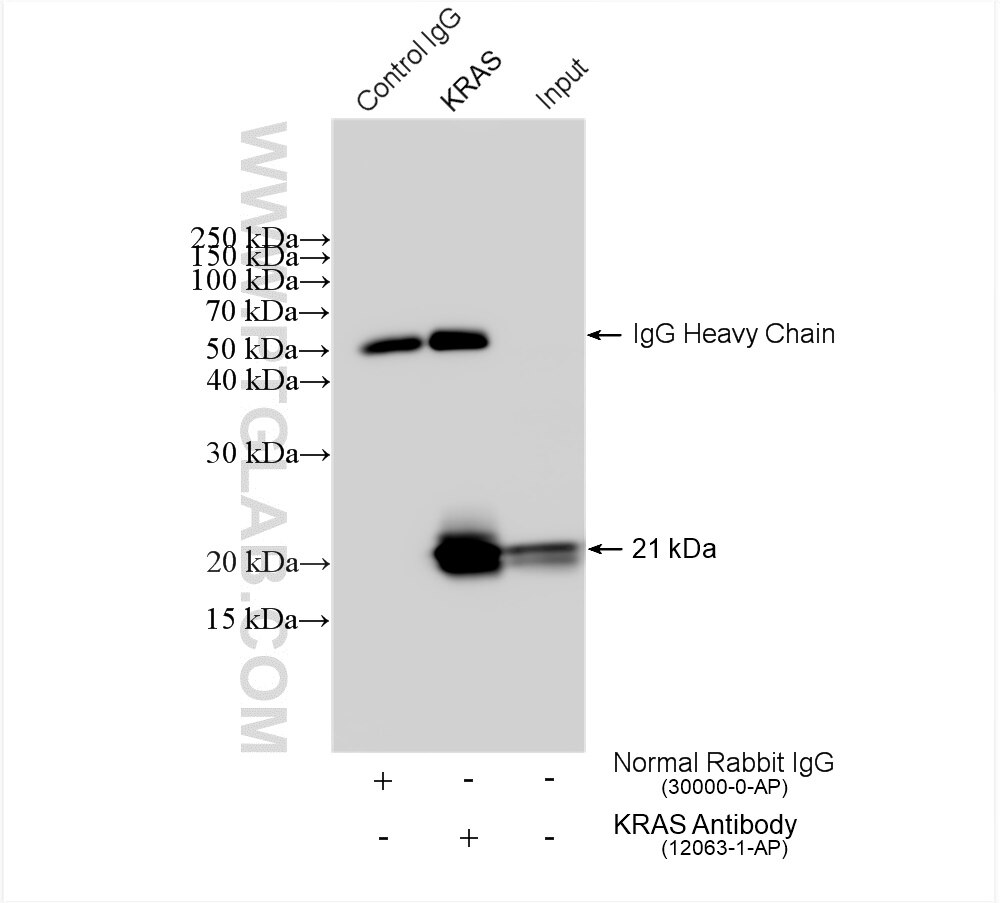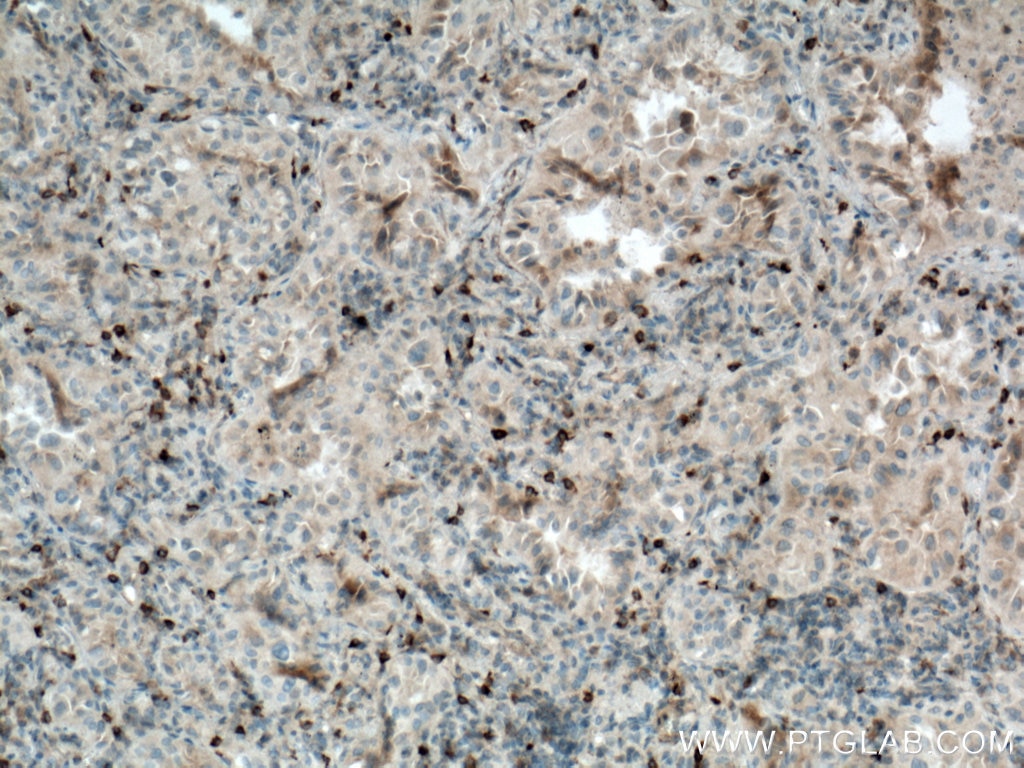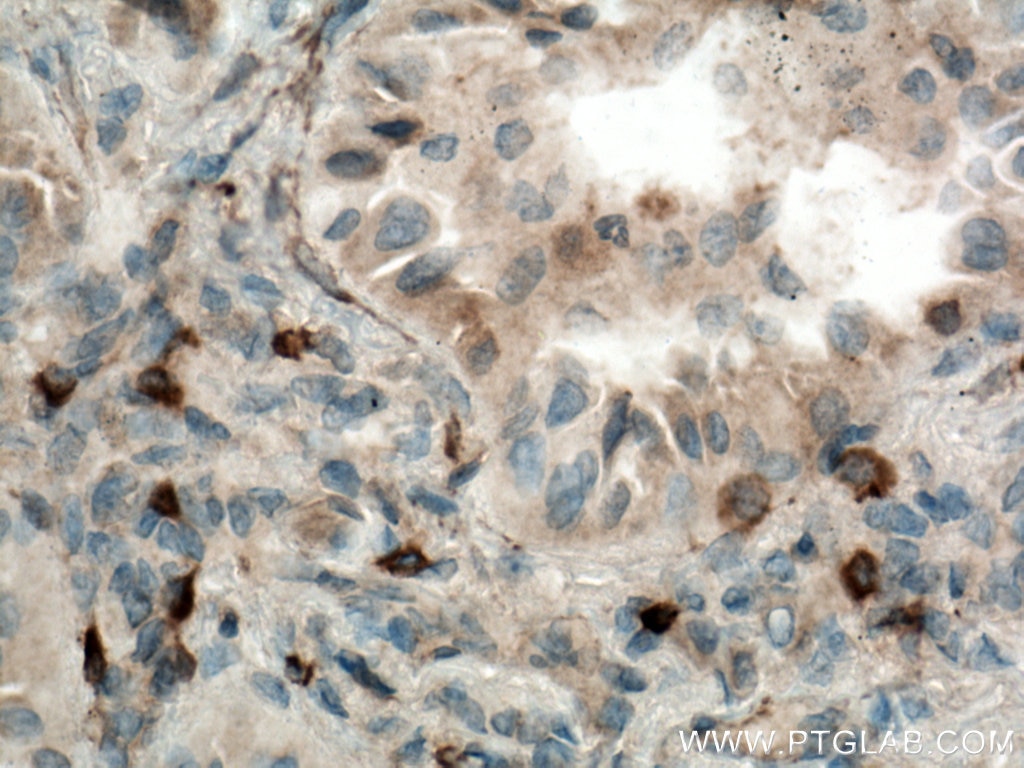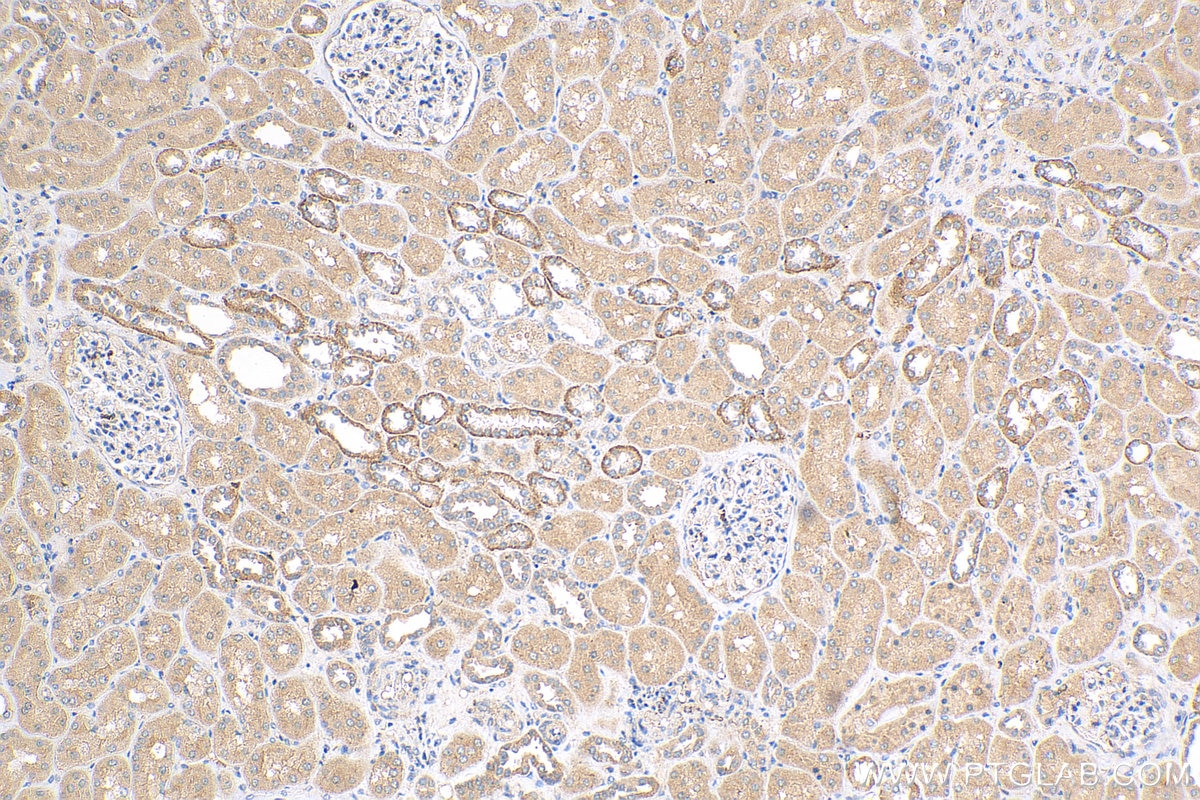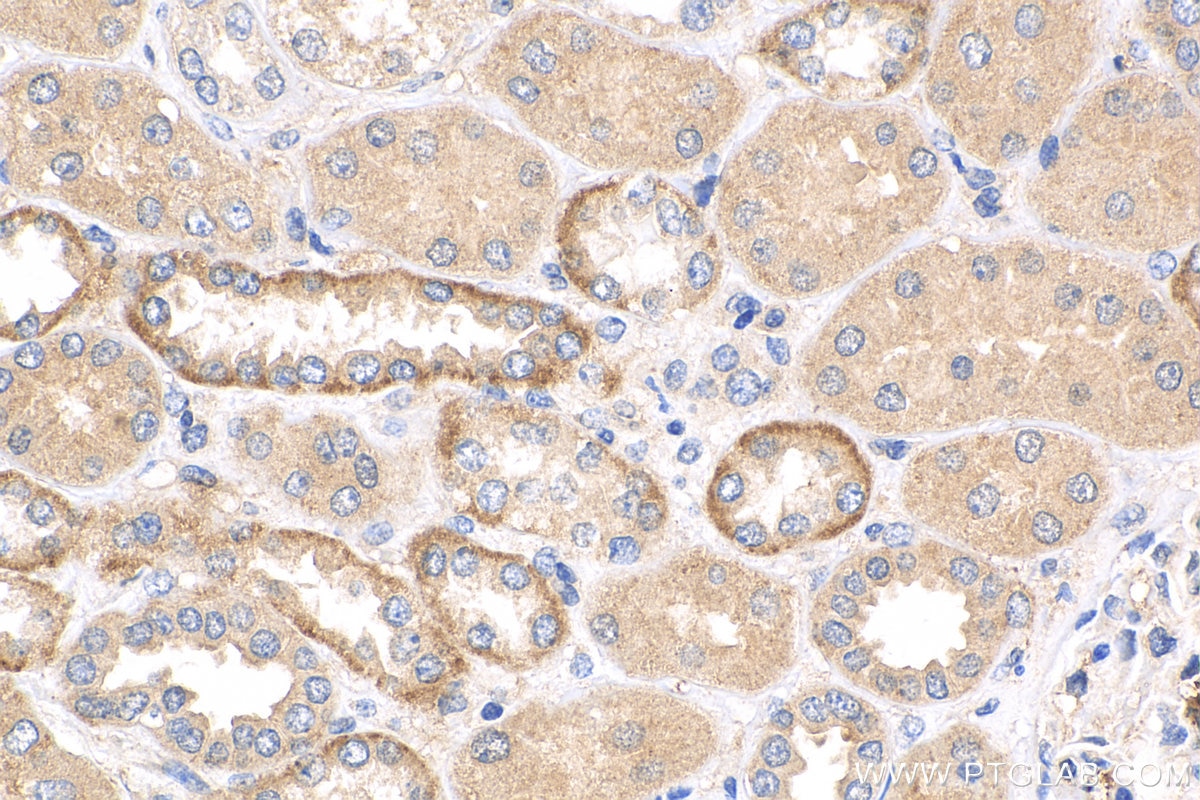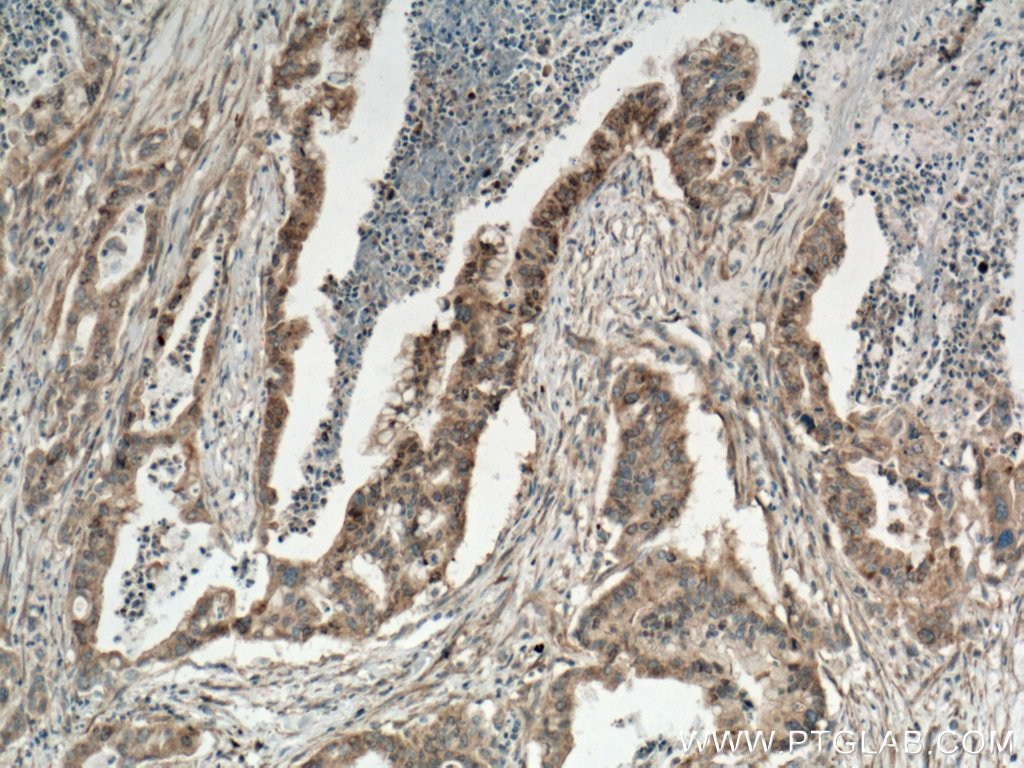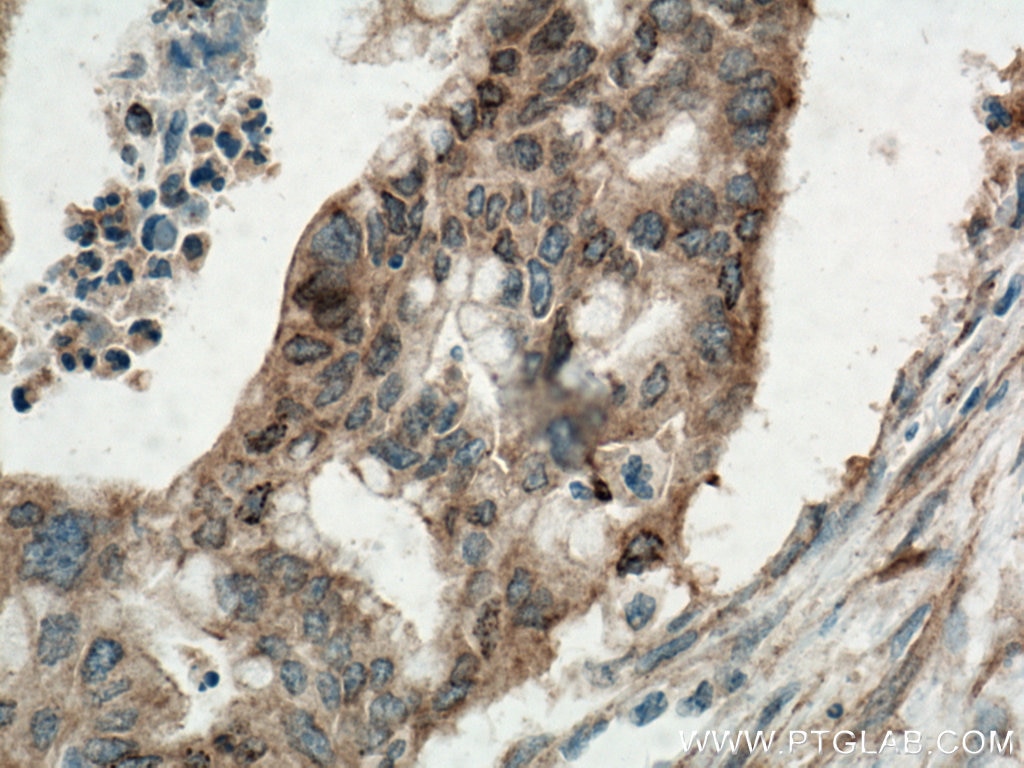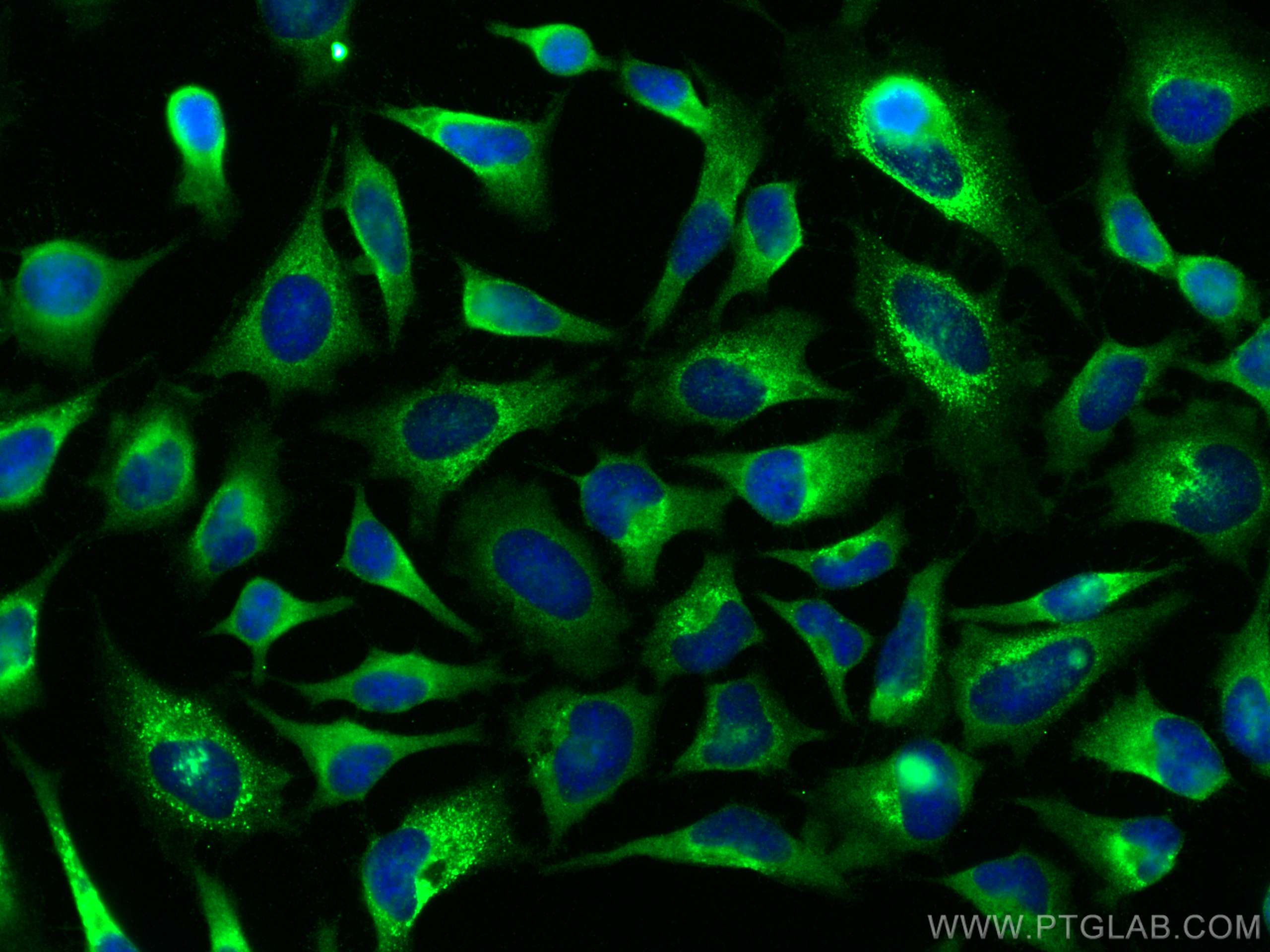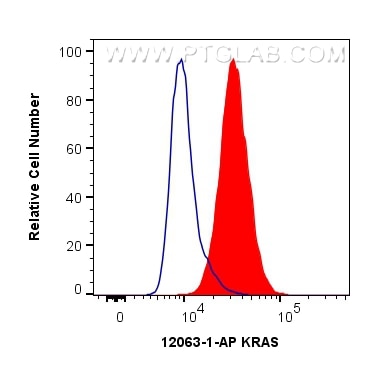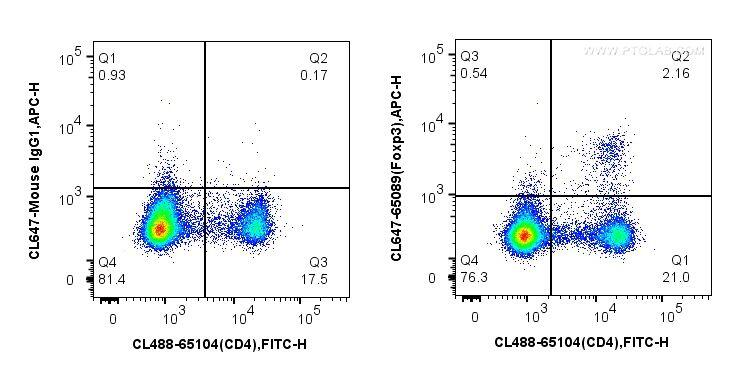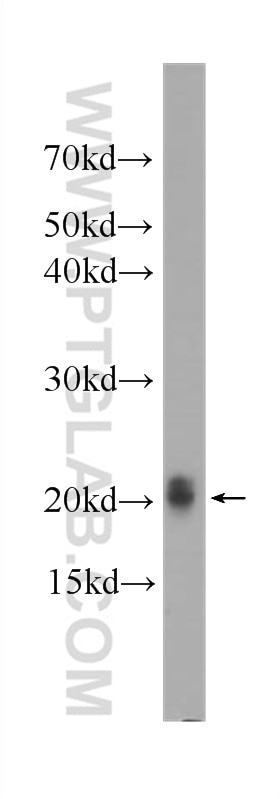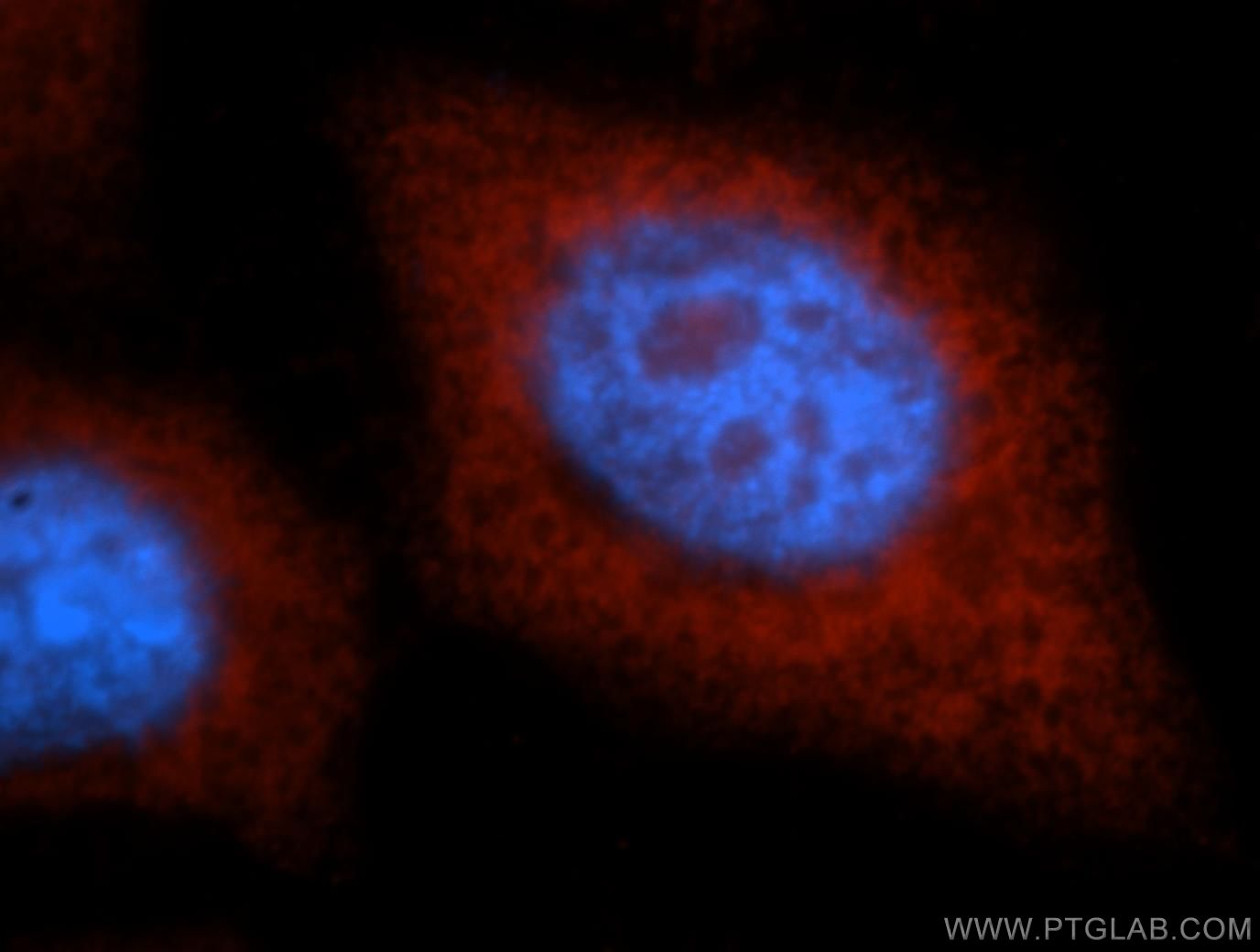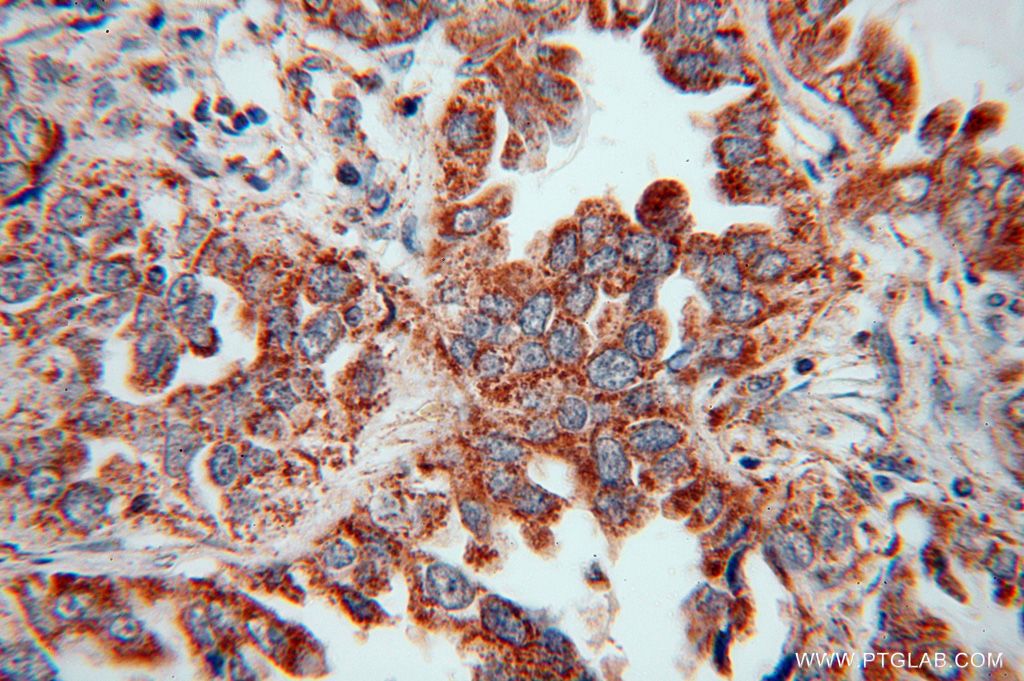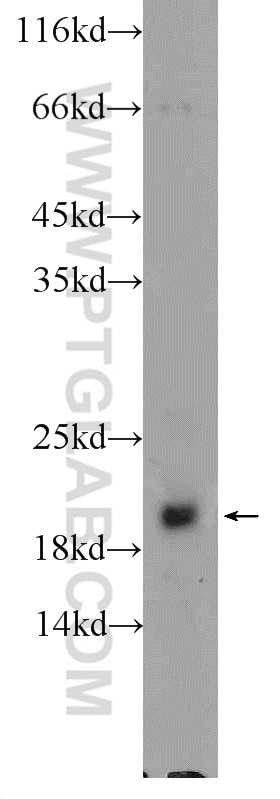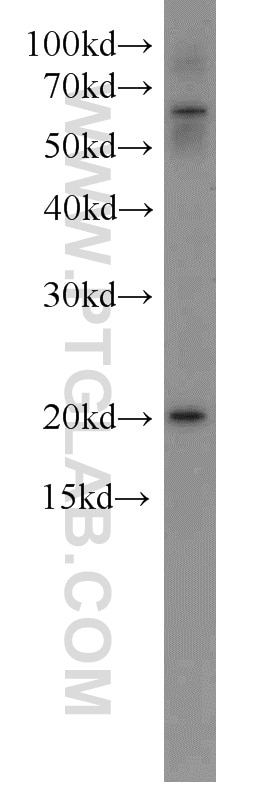- Featured Product
- KD/KO Validated
KRAS Polyklonaler Antikörper
KRAS Polyklonal Antikörper für WB, IHC, IF/ICC, FC (Intra), IP, ELISA
Wirt / Isotyp
Kaninchen / IgG
Getestete Reaktivität
human, Maus, Ratte und mehr (1)
Anwendung
WB, IHC, IF/ICC, FC (Intra), IP, ELISA
Konjugation
Unkonjugiert
Kat-Nr. : 12063-1-AP
Synonyme
Galerie der Validierungsdaten
Geprüfte Anwendungen
| Erfolgreiche Detektion in WB | HEK-293-Zellen, A549-Zellen, HeLa-Zellen, humanes Hirngewebe, humanes Nierengewebe, Maushirngewebe, Mausnierengewebe, Rattenhirngewebe, Rattenlebergewebe, Rattennierengewebe |
| Erfolgreiche IP | HeLa-Zellen |
| Erfolgreiche Detektion in IHC | humanes Lungenkarzinomgewebe, humanes Nierengewebe, humanes Pankreaskarzinomgewebe Hinweis: Antigendemaskierung mit TE-Puffer pH 9,0 empfohlen. (*) Wahlweise kann die Antigendemaskierung auch mit Citratpuffer pH 6,0 erfolgen. |
| Erfolgreiche Detektion in IF/ICC | HeLa-Zellen |
| Erfolgreiche Detektion in FC (Intra) | HeLa-Zellen |
Empfohlene Verdünnung
| Anwendung | Verdünnung |
|---|---|
| Western Blot (WB) | WB : 1:5000-1:50000 |
| Immunpräzipitation (IP) | IP : 0.5-4.0 ug for 1.0-3.0 mg of total protein lysate |
| Immunhistochemie (IHC) | IHC : 1:400-1:1600 |
| Immunfluoreszenz (IF)/ICC | IF/ICC : 1:200-1:800 |
| Durchflusszytometrie (FC) (INTRA) | FC (INTRA) : 0.40 ug per 10^6 cells in a 100 µl suspension |
| It is recommended that this reagent should be titrated in each testing system to obtain optimal results. | |
| Sample-dependent, check data in validation data gallery | |
Veröffentlichte Anwendungen
| KD/KO | See 13 publications below |
| WB | See 110 publications below |
| IHC | See 19 publications below |
| IF | See 10 publications below |
| IP | See 1 publications below |
Produktinformation
12063-1-AP bindet in WB, IHC, IF/ICC, FC (Intra), IP, ELISA KRAS und zeigt Reaktivität mit human, Maus, Ratten
| Getestete Reaktivität | human, Maus, Ratte |
| In Publikationen genannte Reaktivität | human, Huhn, Maus, Ratte |
| Wirt / Isotyp | Kaninchen / IgG |
| Klonalität | Polyklonal |
| Typ | Antikörper |
| Immunogen | KRAS fusion protein Ag2700 |
| Vollständiger Name | v-Ki-ras2 Kirsten rat sarcoma viral oncogene homolog |
| Berechnetes Molekulargewicht | 188 aa, 21 kDa |
| Beobachtetes Molekulargewicht | 21 kDa |
| GenBank-Zugangsnummer | BC013572 |
| Gene symbol | KRAS |
| Gene ID (NCBI) | 3845 |
| Konjugation | Unkonjugiert |
| Form | Liquid |
| Reinigungsmethode | Antigen-Affinitätsreinigung |
| Lagerungspuffer | PBS mit 0.02% Natriumazid und 50% Glycerin pH 7.3. |
| Lagerungsbedingungen | Bei -20°C lagern. Nach dem Versand ein Jahr lang stabil Aliquotieren ist bei -20oC Lagerung nicht notwendig. 20ul Größen enthalten 0,1% BSA. |
Hintergrundinformationen
KRAS, also called p21, is a member of the Ras superfamily of proteins. It is located on human chromosome 12, and contains four coding exons and a 5' non-coding exon (PMID: 12778136). KRAS is a membrane-anchored guanosine triphosphate/guanosine diphosphate (GTP/GDP)-binding protein and is widely expressed in most human cells. Like other members of the Ras family, the KRAS protein is a GTPase, and it is involved in intracellular signal transduction and mainly responsible for EGFR-signaling activation (PMID: 19117687). KRAS mutations have been found in various malignancies, including lung adenocarcinoma, mucinous adenoma, ductal carcinoma of the pancreas and colorectal carcinoma.
Protokolle
| Produktspezifische Protokolle | |
|---|---|
| WB protocol for KRAS antibody 12063-1-AP | Protokoll herunterladen |
| IHC protocol for KRAS antibody 12063-1-AP | Protokoll herunterladen |
| IF protocol for KRAS antibody 12063-1-AP | Protokoll herunterladen |
| IP protocol for KRAS antibody 12063-1-AP | Protokoll herunterladen |
| FC protocol for KRAS antibody 12063-1-AP | Protokoll herunterladen |
| Standard-Protokolle | |
|---|---|
| Klicken Sie hier, um unsere Standardprotokolle anzuzeigen |
Publikationen
| Species | Application | Title |
|---|---|---|
Nat Biotechnol Conformation-locking antibodies for the discovery and characterization of KRAS inhibitors. | ||
Cancer Discov Systematic functional interrogation of rare cancer variants identifies oncogenic alleles. | ||
Mol Cell The oncomicropeptide APPLE promotes hematopoietic malignancy by enhancing translation initiation. | ||
Rezensionen
The reviews below have been submitted by verified Proteintech customers who received an incentive for providing their feedback.
FH Sophy (Verified Customer) (12-22-2022) | I have tried the KRas antibody from a lot of companies and this one from proteintech definitely has been working the best for me.
|
FH Jonas (Verified Customer) (07-29-2022) | Antibody works as expected, dilution with 1:2000 was perfect and could even be increased to 1:5000; delivery was very fast, would recommend!!
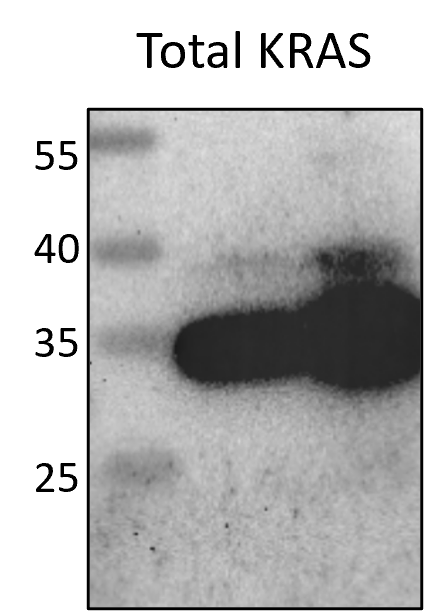 |
FH Usman Shah (Verified Customer) (11-29-2021) | Enables specific detection of KRAS in WBs.
|
FH Kishor (Verified Customer) (12-13-2018) | I am very much satisfied with this antibody. I got good results for cells and rat liver tissue protein.
|
FH Christopher (Verified Customer) (12-11-2018) | Antibody is much better than comparable antibodies. Because of weak expression an very low differences between K-Ras/H-Ras/N-Ras it's quite difficult to detect only K-Ras in a specific way. That is also the problem of this antibody. Please look at my attached blot. 1. Fermentas prestained marker2. PANC-1 whole cell lysate3. PANC-1/EGFP-K-Ras4. HEK293/EGFP-K-Ras5. HEK293/EGFP-H-Ras6.HEK293/EGFP-N-Ras7. 20 ng recombinant K-Ras (His-tagged)Unfortunately, K-Ras (12063-1-AP) recognizes also H-Ras and in less amounts N-Ras. Looking at endogenous K-Ras detection, you have to keep in mind, that the upper band is K-Ras and the lower one H-Ras. Because of the fact, that N-Ras is only recognized in very low amounts (probably almost not on endogenous level) this antibody is great detecting endogenous K-Ras in whole cell lysates with some little problems
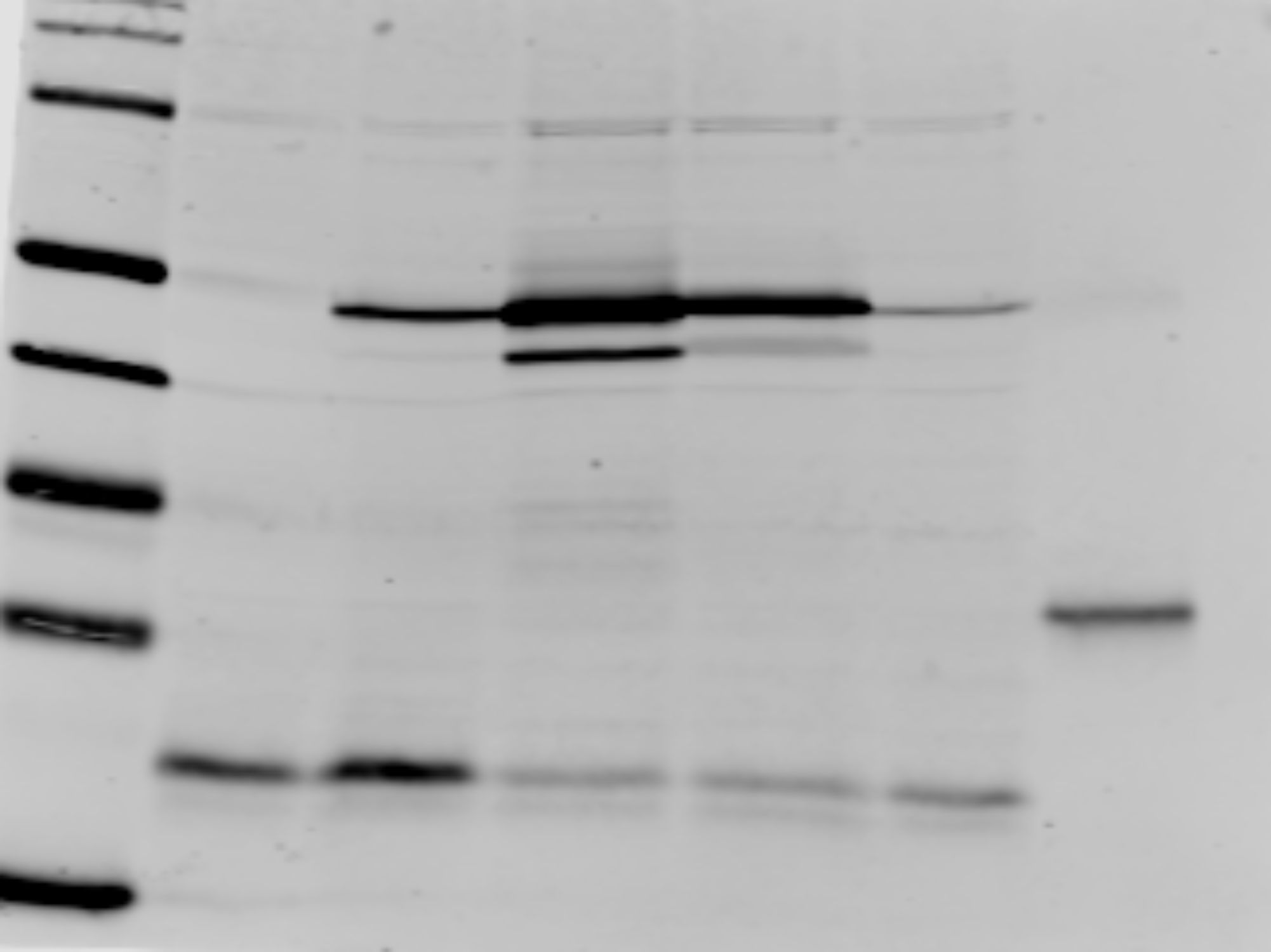 |
